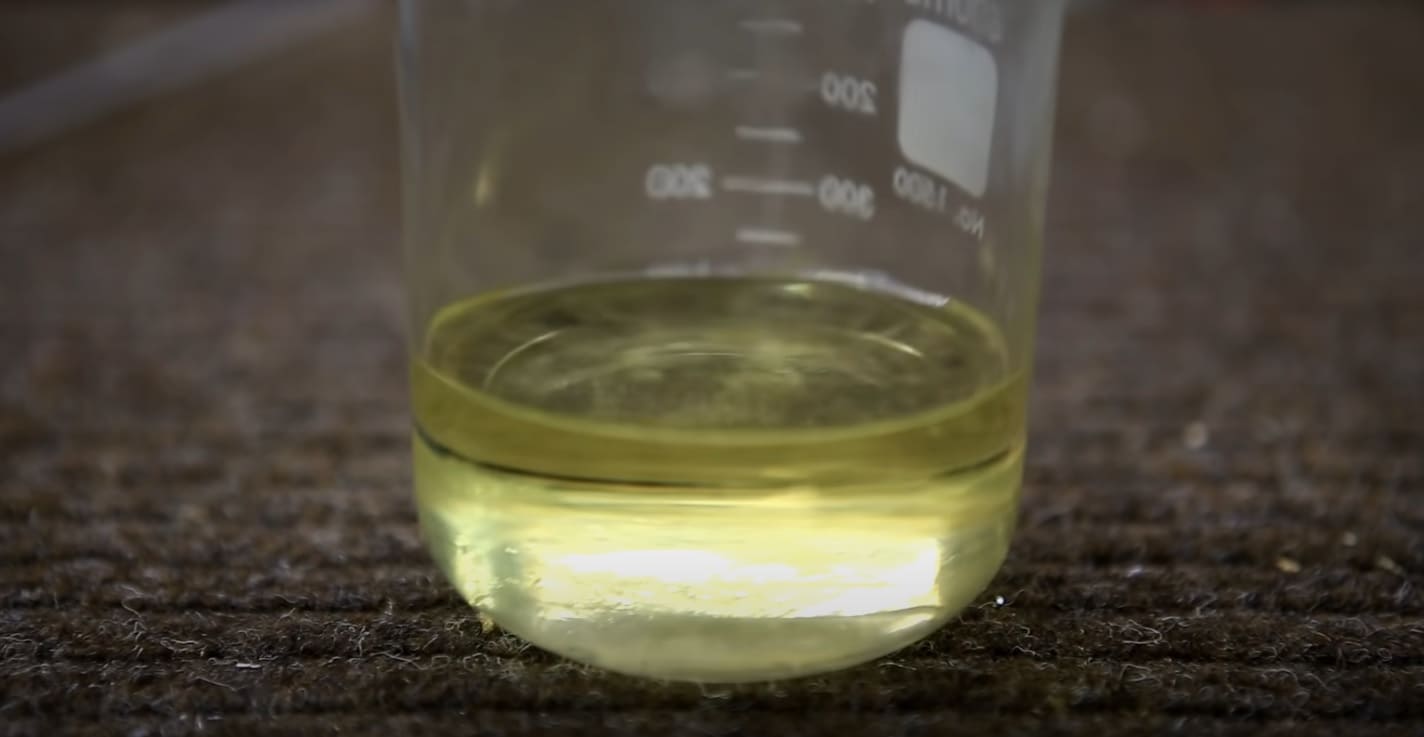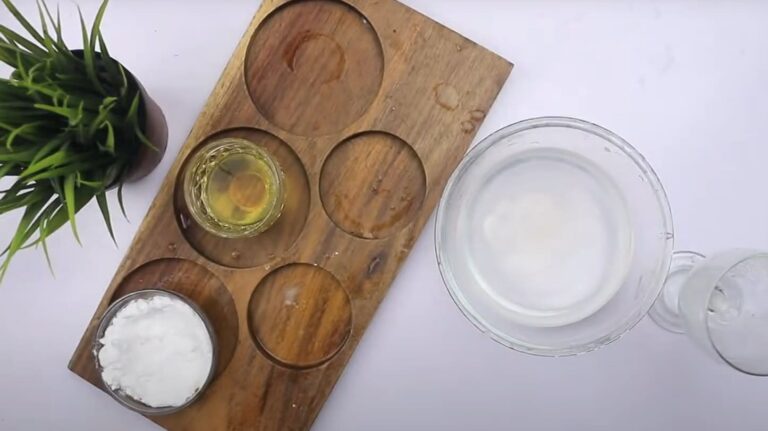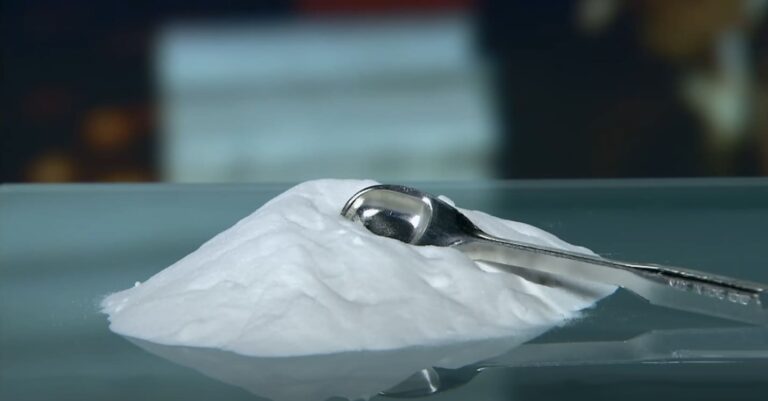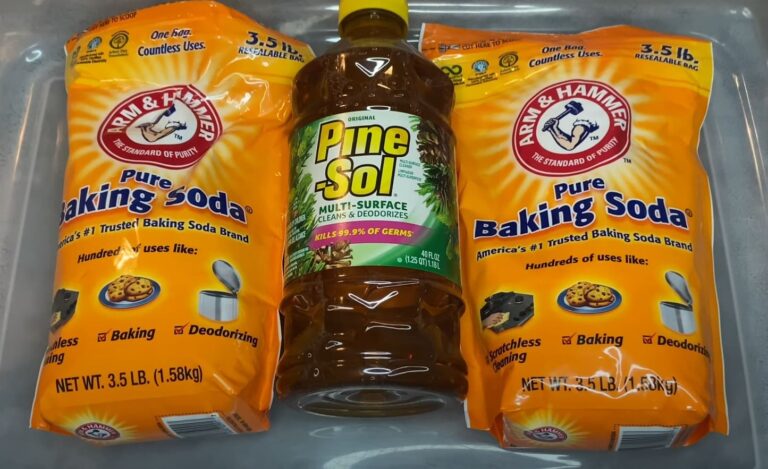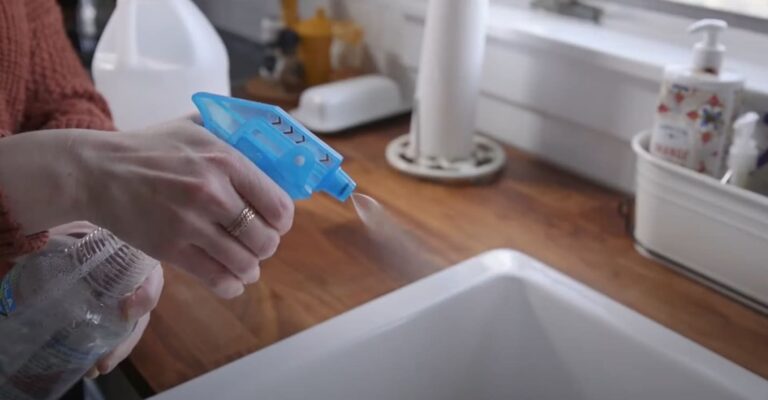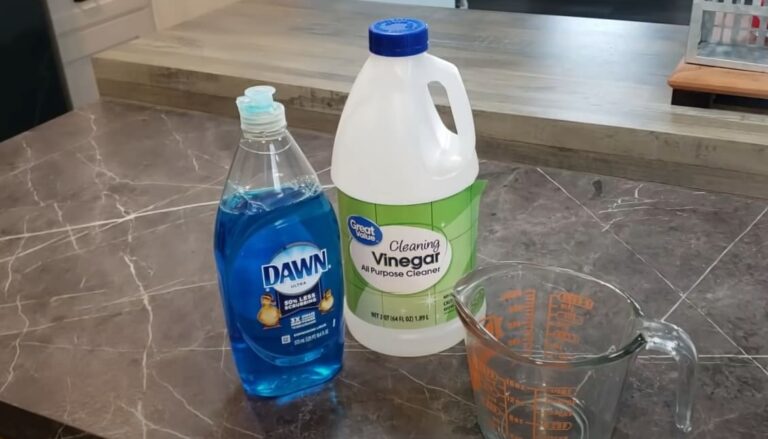Can You Mix Vinegar and Ammonia?
When it comes to cleaning supplies, vinegar and ammonia are both popular choices. They are both effective when used alone, but what happens when you mix the two together? Can you mix vinegar and ammonia? This article will provide an in-depth look at the differences between vinegar and ammonia, as well as the effects of combining them. It will also discuss some alternatives to using a mixture of vinegar and ammonia for cleaning.
So, Can You Mix Vinegar and Ammonia?
Vinegar is a common household cleaning agent, but it should never be mixed with other cleaning products such as bleach or ammonia. Doing so can create hazardous fumes that can be deadly. Vinegar is an acid, while bleach and ammonia are bases, and when mixed they create a chemical reaction that produces highly toxic chlorine gas.
Combining vinegar and ammonia can also create an irritating vapor that causes skin, eye, and respiratory irritation. Symptoms of exposure include coughing, wheezing, throat irritation, and even difficulty breathing if the fumes are inhaled in high concentrations. Inhaling these fumes can also damage your lungs over the long term so it’s important to understand the risks involved before combining any chemicals for cleaning purposes.
What Happens If You Mix Ammonia and Vinegar?
Mixing ammonia and vinegar can be dangerous and produce toxic chlorine gas. This gas has several health hazards, such as burning eyes, difficulty breathing, and coughing. It is important to understand what happens if you mix these two substances to prevent any accidents or injuries that may occur.
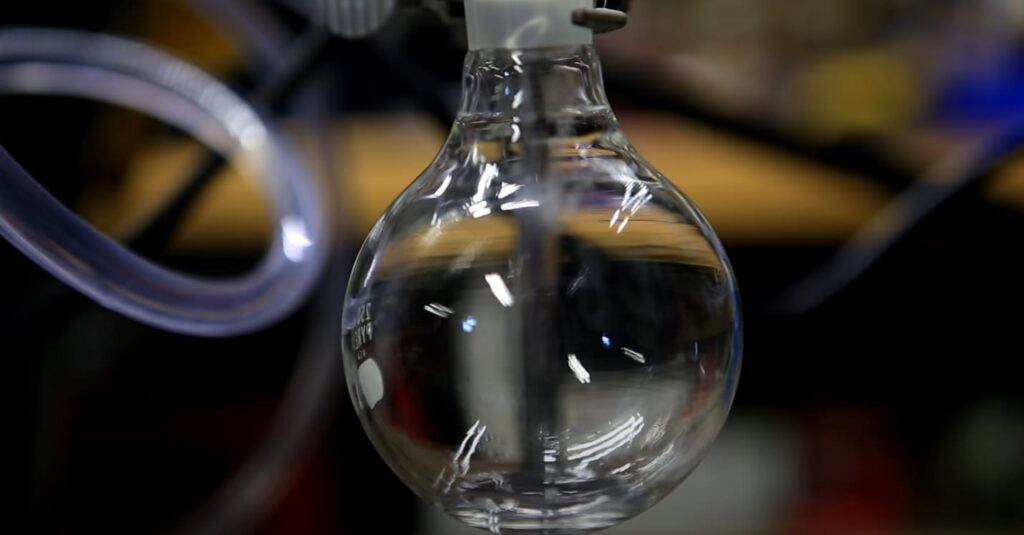
When ammonia and vinegar are mixed, the chemical reaction produces a weak solution of ammonium acetate and water along with small amounts of sodium chloride and hydrogen chloride. The most hazardous element created is chlorine gas; however, it dissipates quickly due to its low molecular weight. Chlorine gas irritates the lungs when inhaled causing a burning sensation in the throat or chest followed by coughing fits.
It is best to avoid mixing ammonia and vinegar since the effects can be detrimental to human health.
Vinegar vs. Ammonia: Which is Better for Cleaning?
Vinegar and ammonia are two of the most widely used household cleaners. Both offer effective cleaning solutions, but which one is better? Comparing vinegar vs. ammonia will help determine which is more suitable for a variety of cleaning jobs.
Vinegar has natural disinfecting properties, making it an ideal choice for areas that need to be sanitized, such as countertops and door handles. It is also great at deodorizing fabrics and carpets with its mild acidity, while its non-toxic formulation makes it safe to use around pets and children. On the other hand, ammonia can tackle tough grease spots that a regular detergent would struggle with. Plus, its powerful scent helps mask lingering odors in your home.
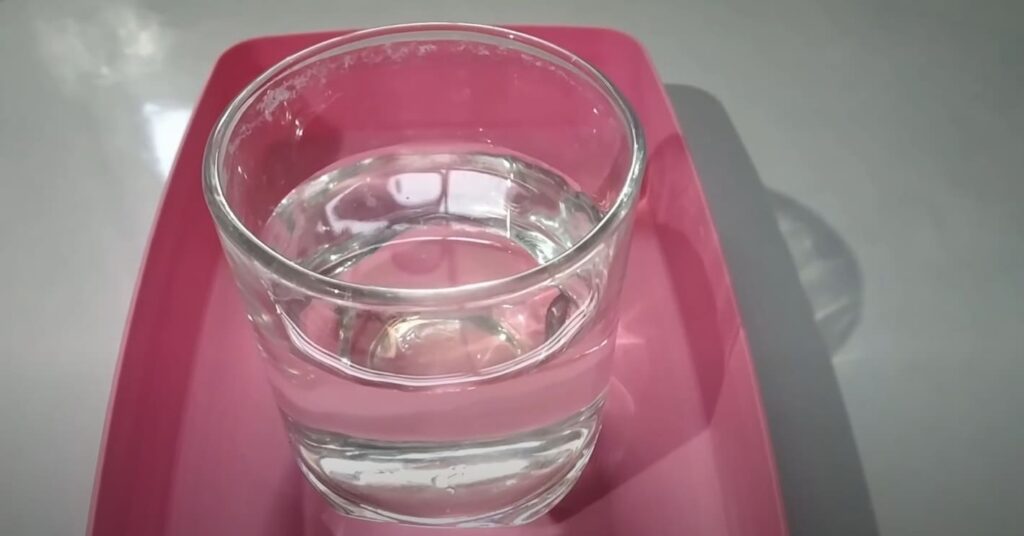
When deciding between vinegar vs. ammonia, consider what you’ll be using the product for. If you have a strong, persistent odor that needs to be cleaned and removed, ammonia is the best option. Vinegar is also an effective odor-eliminator, but it’s not as efficient at breaking down grease and cleaning tough stains.
What Can You Clean With Vinegar?
Vinegar is often used for cleaning and deodorizing, and it can be a great alternative to harsh chemical cleaners. There are plenty of items in your home that can be cleaned with vinegar, from countertops to carpets, so you don’t have to worry about exposing your family or pets to nasty chemicals. Here are some of the most common things you can clean with vinegar.
Your floors and countertops will benefit from a rinse with warm water mixed with white vinegar. This solution can help break down dirt without damaging surfaces like tile or laminate flooring. You can also use this mixture on bathroom fixtures like sinks, bathtubs, toilets, and even showers; just make sure you rinse them well afterward so they don’t remain too slippery!
What Can You Clean With Ammonia?
Ammonia is a powerful cleaning agent that can be used to clean nearly anything. From kitchen counters to bathroom surfaces, ammonia works great for killing germs and bacteria. In addition, it’s cheap and easy to find in most stores, making it one of the most popular all-purpose cleaners on the market.
But what exactly can you clean with ammonia? The short answer is almost anything! Ammonia is an effective cleaner for many different surfaces such as glass, tile, and stainless steel. It also works great on countertops, sinks, and toilets. Plus, its strong disinfectant properties help kill germs and bacteria on contact. And if you have any stubborn stains or grease spots, ammonia is the perfect solution – just make sure to use it in a well-ventilated area!
FAQ
Is vinegar and ammonia toxic?
Yes, vinegar and ammonia are both toxic when ingested. If mixed, they can create highly toxic gases including chloramine and hydrazine. Chloramine is a poisonous gas that can irritate the eyes, nose, throat, and lungs. Hydrazine is an even more dangerous gas that can cause severe respiratory issues if inhaled. Additionally, both of these gases are highly flammable and can cause explosions if exposed to an open flame or spark.
For this reason, it’s important to take extreme caution when handling either vinegar or ammonia individually as well as when mixing them. It’s best to keep any containers tightly sealed and stored in a well-ventilated area away from any sources of heat or flame. In the event of accidental inhalation, seek medical attention immediately.
Does vinegar cancel out ammonia?
Yes, vinegar does cancel out ammonia. Vinegar is an acidic substance and ammonia is a basic substance. When these two substances come into contact with one another, they form a neutral solution. This means that the acidic properties of vinegar are canceled out by the basic properties of ammonia, and vice versa.
It is important to note that when mixing vinegar and ammonia, you should always do so in a well-ventilated area and use protective gear such as gloves and goggles. The fumes created from this reaction can be dangerous if inhaled. Additionally, never mix vinegar with bleach as this can create a toxic gas.
What not to mix with ammonia?
Ammonia is a strong base and should not be mixed with any other chemical, particularly acids. Acids and bases can react together to form dangerous compounds, so mixing ammonia with any acid could be potentially hazardous.
In addition, ammonia should not be mixed with bleach or other household cleaning products that contain chlorine. When these two chemicals are combined, they produce toxic gases such as chloramine and hydrazine, which can cause respiratory irritation and even death in extreme cases. It is best to avoid mixing these two chemicals altogether.
Finally, it is important to note that ammonia should never be mixed with water unless it has been specifically diluted for use in a cleaning solution. Undiluted ammonia can cause skin irritation and damage fabrics, so it is important to always dilute it before using it for cleaning purposes.
Can smelling ammonia harm you?
Yes, smelling ammonia can be harmful to your health. Ammonia is a toxic gas that can irritate the skin, eyes, throat, and lungs when it is inhaled. Short-term exposure to high concentrations of ammonia in the air can cause coughing, and nose and throat irritation. Prolonged exposure to lower levels of ammonia can also lead to respiratory problems such as asthma or bronchitis. In addition, long-term exposure to even low levels of ammonia may cause damage to the liver and kidneys. Therefore, it is important to take precautions when using products that contain ammonia or are made with ammonia-based ingredients.
Is ammonia stronger than vinegar?
Generally speaking, ammonia is a stronger cleaner than vinegar. Ammonia has a pH of 11 and vinegar has a pH of around 2-3. This means that ammonia is more alkaline and better at cutting through grease and oil than vinegar. Additionally, ammonia is more effective at killing bacteria, mold, and germs due to its higher alkalinity.
However, it’s important to note that ammonia can be hazardous if not used properly. It should never be mixed with bleach or other cleaning products as this can create dangerous fumes. Additionally, it should always be used in a well-ventilated area and people should wear protective gear such as gloves when using it.
While ammonia is generally stronger than vinegar when it comes to cleaning, it’s important to use caution when handling it as it can be hazardous if not used properly.
Can you mix vinegar and Fabuloso?
Yes, you can mix vinegar and Fabuloso. Vinegar is a great natural cleaning agent that can be used to clean many different surfaces. It’s an effective way to cut through dirt and grime without harsh chemicals. When mixed with Fabuloso, it creates an even more powerful cleaning solution.
Fabuloso is a multi-purpose cleaner that can be used on a variety of surfaces, including floors, walls, countertops, and appliances. Adding vinegar to the mix increases its cleaning power, making it even more effective at removing tough stains and odors. This combination will leave your home sparkling clean without any harsh chemical smells or residue.
When mixing vinegar and Fabuloso together, it’s important to use the right proportions for optimal results. A good ratio is 1 part vinegar to 4 part Fabuloso. This ensures that the cleaning solution isn’t too acidic or too weak to do its job effectively.
Can you mix vinegar and Pine-Sol?
Yes, you can mix vinegar and Pine-Sol. This combination can be used to clean a variety of surfaces, including tile, linoleum, and hardwood floors. Vinegar is known for its natural cleaning properties, while Pine-Sol is an all-purpose cleaner that helps to remove tough dirt and grime.
When mixing vinegar and Pine-Sol, it’s important to follow the instructions on the labels of both products. Generally speaking, you should use 1/4 cup of white vinegar for every gallon of warm water. Then add a few squirts of Pine-Sol to the mixture. Be sure to wear gloves when cleaning with this solution as it may cause skin irritation.
For best results, use a mop or sponge to apply the solution to your floors and then rinse with clean water. This will help ensure that no residue is left behind which could damage your flooring over time.
Wrapping Up
It is clear that mixing vinegar and ammonia is not a safe option. Not only can it produce hazardous fumes, but it could also lead to dangerous chemical reactions. Moreover, combining the two substances will not yield useful results and can be potentially damaging to your home. For all these reasons, it is highly recommended that you avoid mixing vinegar and ammonia together. Instead, use each substance independently for cleaning or other tasks according to the label instructions.

